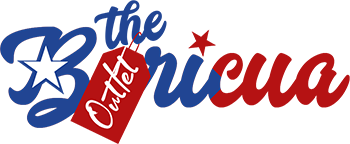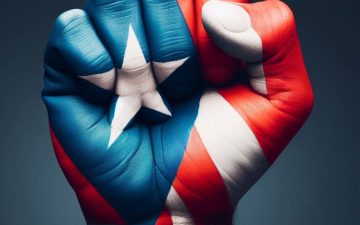What Does “Boricua” Mean? More Than Just a Word…It’s a Legacy
You’ve probably heard it in music, seen it on shirts, or heard someone proudly shout it from the rooftops:
“¡Yo soy Boricua, pa’ que tú lo sepas!”
But what does Boricua actually mean? And why does it spark so much pride and passion?
Well, buckle up—because this word carries more than just syllables. It carries an entire history, identity, and spirit of resistance, pride, and power.
The word Boricua (pronounced boh-REE-kwah) traces back to Borikén or Borinquén, the indigenous Taíno name for the island of Puerto Rico before the Spanish arrived in 1493. Borikén means “Land of the Valiant Lord,” referring to the strength of the land and its people.
The Taíno were the original inhabitants of the island—farmers, fishers, and community-builders with deep spiritual ties to nature and ancestry. When colonizers came, they attempted to erase these native roots through violence, slavery, and forced assimilation.
But Boricua survived.
The descendants of the Taíno, along with enslaved Africans and Spanish settlers, formed a rich and diverse cultural blend. Over time, Puerto Ricans began embracing the name Boricua as a symbol of resistance and identity—something deeper than just “Puerto Rican.” It’s a reminder that the soul of the island was never fully conquered.
To call yourself Boricua is to claim your roots—not just as someone from Puerto Rico, but as someone connected to an ancient and powerful legacy. It’s a cultural flag waved in music, art, protest, poetry, and everyday pride.
Think about it:
When Marc Anthony sings with passion,
When Bad Bunny reps the island on global stages,
When families in the Bronx or Orlando or Philly scream “Boricua!” at parades—
They’re not just saying where they’re from. They’re saying who they are.
Key moments that fueled Boricua pride:
1493–1500s: Spanish colonization begins, but Taíno culture leaves an everlasting mark.
1800s: Nationalist movements begin to grow, and terms like Boricua become identity markers.
1950s: Large migration to the U.S. mainland boosts cultural pride and the need to hold onto island roots.
Today: The term “Boricua” is embraced globally across music, sports, politics, and art as a symbol of unity and cultural fire.
Being Boricua is about strength. It’s about surviving colonialism, hurricanes, blackouts, and displacement—and still dancing, still celebrating, still creating. It’s not just for people born on the island—it’s for anyone who holds Puerto Rico in their heart.
So next time you hear someone say “Boricua,” know it’s not just slang. It’s a story. A song. A badge of honor.
If you’re Puerto Rican, own it. Say it loud. Teach the next generation what it means.
And if you’re not? Take a moment to learn about it, respect it, and maybe even celebrate it alongside your Boricua friends.
Because Boricua isn’t just a word.
It’s a declaration:
We are still here. And we are proud.

